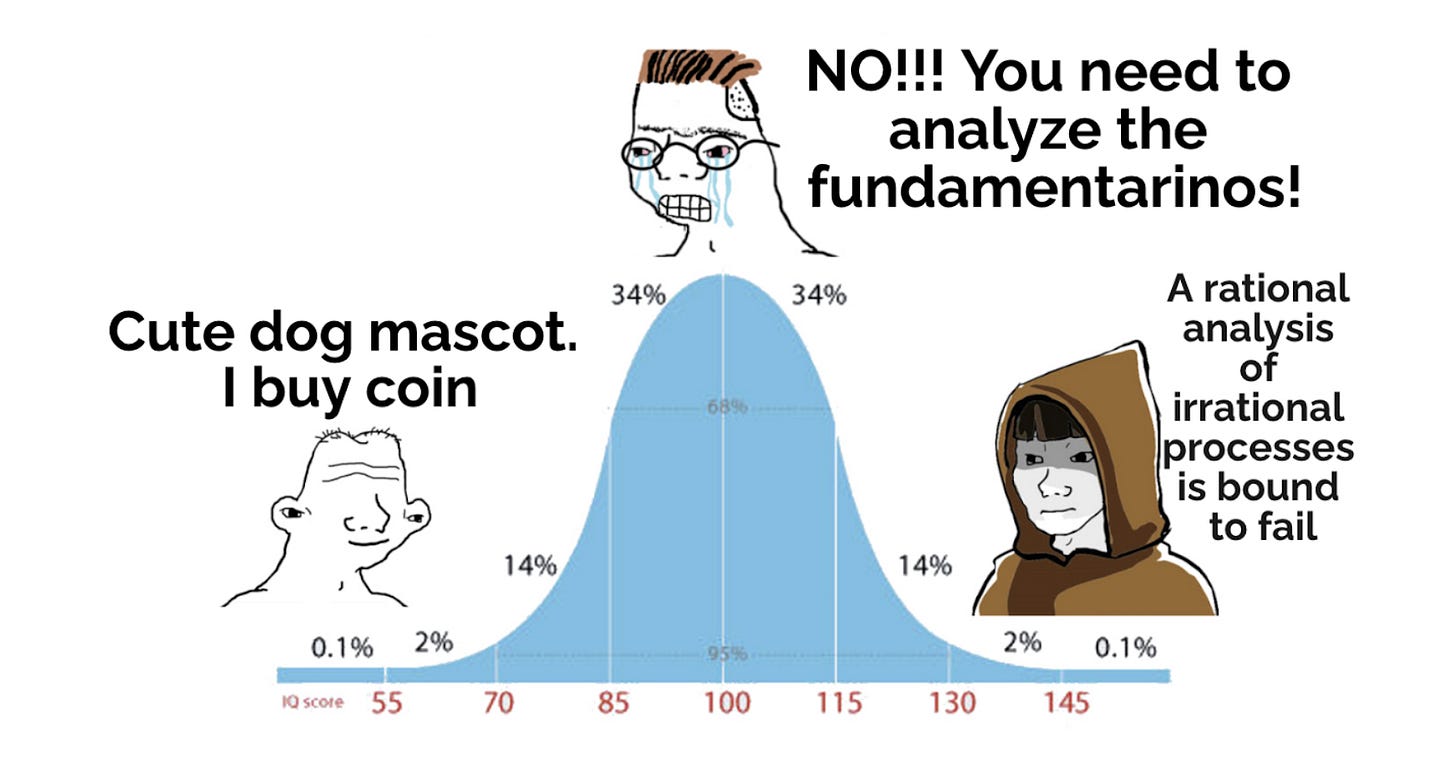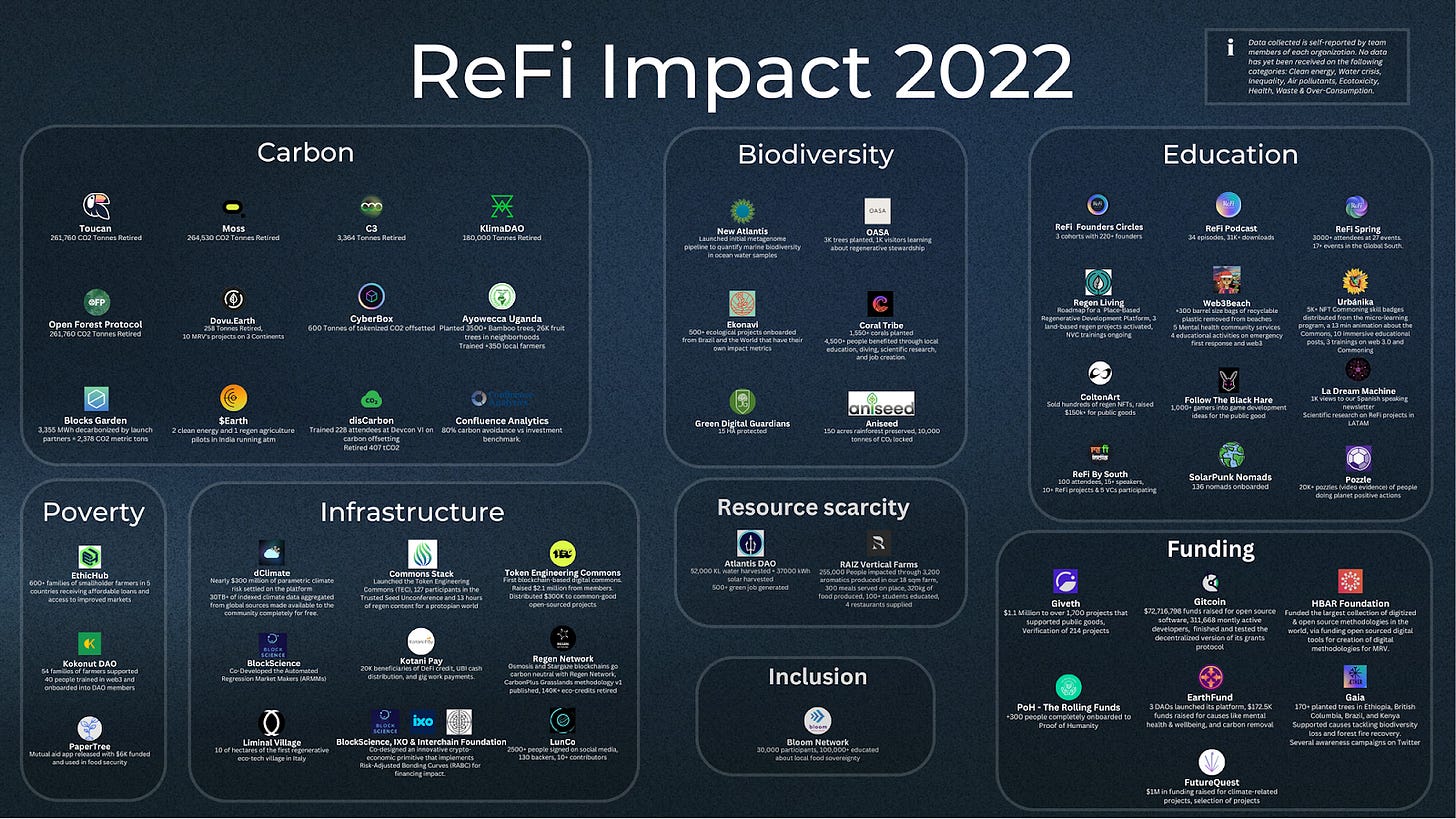🕵🏻♀️ Particula: the First ESG Token Data Platform
Crypto is a scam, Navigating the jungle of information in Crypto, Particula: Moody for ESG tokens
‘Crypto is a scam’
That is one of the most frequent statements I’ve heard from many people or read in mainstream media. Negative perception toward cryptocurrency does exist in people’s minds. Some even think that it’s nothing more than an internet slot machine.
These critics are even stronger in the last years due to the scandals such as the crash of the algorithmic “stable” coin Terra Luna or the money laundering centralized exchange FTX.
Source: Coin market cap
Source: BYBIT
The reason for this happening is due to the fact that cryptocurrency technology is still relatively new, and many people lack the knowledge and understanding to properly assess it. It’s also not easy for both experienced institutional investors and casual day traders to collect the right information about what they are actually buying.
As Buffet, once said, never invest in a business you cannot understand.
In traditional finance, we already have many guardrails to avoid bad actors in the system or at least minimize the impact if one exists. For example, the Basel regulation that ensures banks to maintain adequate capital to absorb losses and protect depositors.
Or the Sarbanes-Oxley Act, which was passed in 2002 in response to the Enron scandal, to establish new requirements for corporate governance and increased penalties for financial fraud.
But crypto is a new frontier, some even say it's the wild, wild west of finance. Just like in the wild west, new communities and economic models keep popping up in the crypto space, such as Regenerative Finance (ReFi).
In my own word, ReFi is about using cryptocurrency technology and game theory economics to create an abundance of positive environmental and social impacts. There are so many potentials that ReFi can do for the world, from carbon credits, biodiversity protection, levelling up education, and many more.
However, we need to make sure that investors are well-informed to make sound investment decisions and avoid falling into the wrong rabbit hole.
Source: ReFi DAO
That is why in this article I will share the learnings from my conversation with Timm and Nadine from Particula, who are building a solution to minimize the risk of scams in ReFi.
🤯 Navigating the jungle of information in Crypto
In investing in cryptocurrencies, the word DYOR (Do your own research) is commonly used. Many casual investors like me need to spend hours jumping into the rabbit hole, exploring discord and crypto Twitter to decide if a project is legit or not.
This is impossible for institutional investors or corporate. No experienced investors will make their investment decisions based on dog and rocket memes (crypto memes are funny though).
Source: EnjoyTheWeather
While the traditional crypto use cases are focused on making a profit, ReFi is beyond that. It’s about creating impact, similar to the sustainability concept of triple bottom line.
Hence, the community attracts optimistic people from every walk of life, collaborating with each other to tackle the biggest coordination problem in the world, such as education, social impact, and environmental preservation.
As more money is flowing into the ReFi space and is expected to increase in the next years, it will be becoming more lucrative for bad actors to join the bandwagon. Misusing the positive spirit and openness of the community. Just like in agriculture, the enormous harvest will attract predatory locusts.
Source: EnjoyTheWeather
To attract institutional investors and increase adoption of ReFi outside the Web3 space, we need to have a platform that can help investors to do due diligence. Like Moody's credit rating that helps investors determine the level of risk associated with investing in a specific financial instrument.
Thankfully Particula is here to save the day!
Source: DW
🧑🏼💻 Particula: Moody for ESG tokens
Just like Moody’s rating, Particula provides financial, legal, and operational information for regenerative finance assets from tokenized carbon credits, forestry NFT, and many more. Particula provides rating systems and analyses to give the necessary information and make it easier for investors and corporates to invest in ReFi and ESG tokens.
This enables investors to make a sustainable, data-driven decisions.
I learned about Particula from the Alphafounders event, a European community for Web3 builders, organized by the folks at Bit & Pretzels (a well-known Munich based tech conference). There I met Timm, a crypto analyst, and Nadine, a digital marketer. Together with another co-founder, Wolfram, a software veteran, they founded Particula.
The product that they are building is the perfect answer the pain points that I was mentioning in the previous section.
Source: Particula
How does Particula works? Comparing Apples to Apples
In the Web3 ecosystem, it’s not easy to compare different tokens, as every project claims to be doing something new or did not provide much information to understand the underlying asset (remember memes coin). Particula sees this as an opportunity rather than a challenge.
They create a new grouping category to be able to compare one token to the other, apple to apple. To do this, they analyzed over 300 data points in total! From publicly available data such as project whitepapers, onchain transactions, social media engagement, and talking with the project owner directly.
So far, Particula has gathered data from more than 400 projects. An amazing number for several months of work.
Source: Particula
However, it’s not just about quantity but also quality. To ensure that the data fulfills the institutional due diligence process, they also work with a network of lawyers, tax advisors, and smart contract auditors. This is very important to create confidence for investors to fund ReFi projects.
Currently, Particula is collaborating with European Carbon Offset Tokenization Association (ECOTA) to develop a standardized classification system with the aim to create a rating framework that can provide insights objectively.
Source: Particula
Outlook: beyond carbon tokens
I have been talking a lot in this article about tokenized carbon credits. But it’s just a starting point. There are plenty of other exciting ReFi projects that come in various shapes and sizes.
Here are some examples that the team at Particula has analyzed:
Source: EnjoyTheWeather
In the long term, Particula plans to be the go-to place for ReFi and ESG tokens database, the first point of contact for any company, investor, or private individual planning to invest in digitized assets at the intersection of sustainability and Web3. It would be exciting to see what other projects and use cases they will analyze in the future
This doesn’t seem hard to achieve for a great founding team like Particula. They are very passionate about what they are doing and working hard to develop a state-of-the-art ESG token data platform.
Not just that, both Timm and Nadine are amazing human beings, very humble and genuinely friendly since the first time we met in January. Fast forward a couple of months, and we are still closely in touch and currently building the ReFi Munich community, together with other amazing frens from Fund the Planet and Vanagon Ventures.
At the recent ReFi Munich meetup, Nadine and Timm from Particula wearing white shirts on the right side of the photo.
If you are interested to invest in ReFi and various types of ESG tokens but don’t know where to start, I recommend checking out their website and signing up for the early access waiting list. It’s never too late to be part of the regenerative movement.
💡 Conclusion
Web3 and especially the Regenerative Finance space are just getting started, and the frontier is wide open ahead of us. In every innovation, there will always be challenges along the way.
Creating something new is hard, and mistakes will be made.
Source: 9gag
Thankfully, there will always be people who step up and try to help others make the right decisions, just like Particula.
To close this article, I will leave you with a quote from Charlie Munger from the book “Poor Charlie's Almanack”:
The best thing a human being can do is to help another human being know more.
















